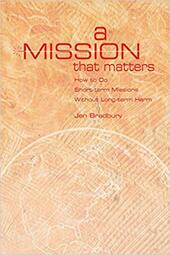At a recent mission trip meeting, my teens wrestled with whether or not our summer mission trip currently focuses on serving others (meeting needs) or on enacting justice (recognizing, understanding, and addressing systemic brokenness).
By default, most mission trips skew towards service rather than justice-work. However, as followers of Jesus, we are called to do more than serve. We are called to do justice.
That’s why, when planning your mission trip (or choosing an organization through which to do a summer mission trip), it’s important to be able to recognize these five marks of a justice-focused mission trip.
1. Justice-focused mission trips value the community you seek to serve. They ask rather than assume what people need. They value the expertise of locals and do things their way. They recognize that mission trip participants have more to learn from the locals than the locals do from them.
2. Justice-focused mission trips are relational. It’s through relationships that students learn other people’s stories. By listening to other people’s stories, teens develop empathy. They begin to recognize systemic injustices, which then becomes personal to them because they directly affect someone they care about, someone who they might even consider to be a friend.
3. Justice-focused mission trips ask “Why?” So often, the first question a mission trip team asks the community it seeks to serve is “What can we do to help?” The answer to that question always leads to service opportunities – ways to address immediate needs. Such things CAN be helpful to people. However, justice-focused mission trips aren’t content with meeting immediate needs. Instead, they challenge participants to ask why those needs exist in the first place and to continue digging deeper and deeper until they can identify the systems and people that first created the need.
4. Justice-focused mission trips create holy discontent. They don’t just leave participants feeling good about what they accomplished while on the trip. Instead, they leave participants feeling frustrated by the complexity of the problems and by the people and systems that have contributed to those problems.
5. Justice-focused mission trips impact participants long after they return from the trip. They challenge teens to come home and share their stories and more importantly – the stories of those they served. They create advocates who continue speaking on behalf of those whose voices have been marginalized. They intentionally invite participants to think about how their experience might impact their vocation – their place in God’s story.
Mission trips that exhibit these five characteristics are life-influencing. They have the ability to impact people’s entire future. They truly are kingdom-oriented – working not just to slap a bandaid on a problem but rather to enact justice on behalf of the poor and oppressed.
**************************************************

To learn more about how to do short-term mission trips without long-term harm, check out my book, A Mission That Matters.